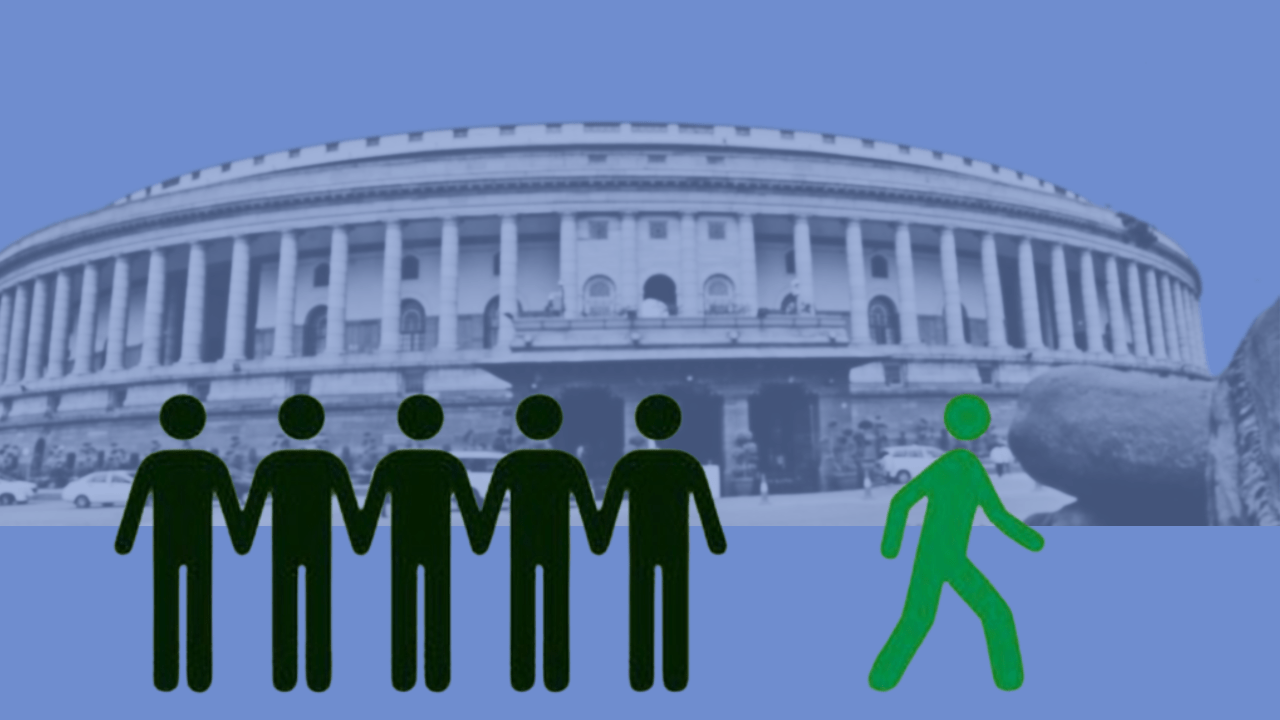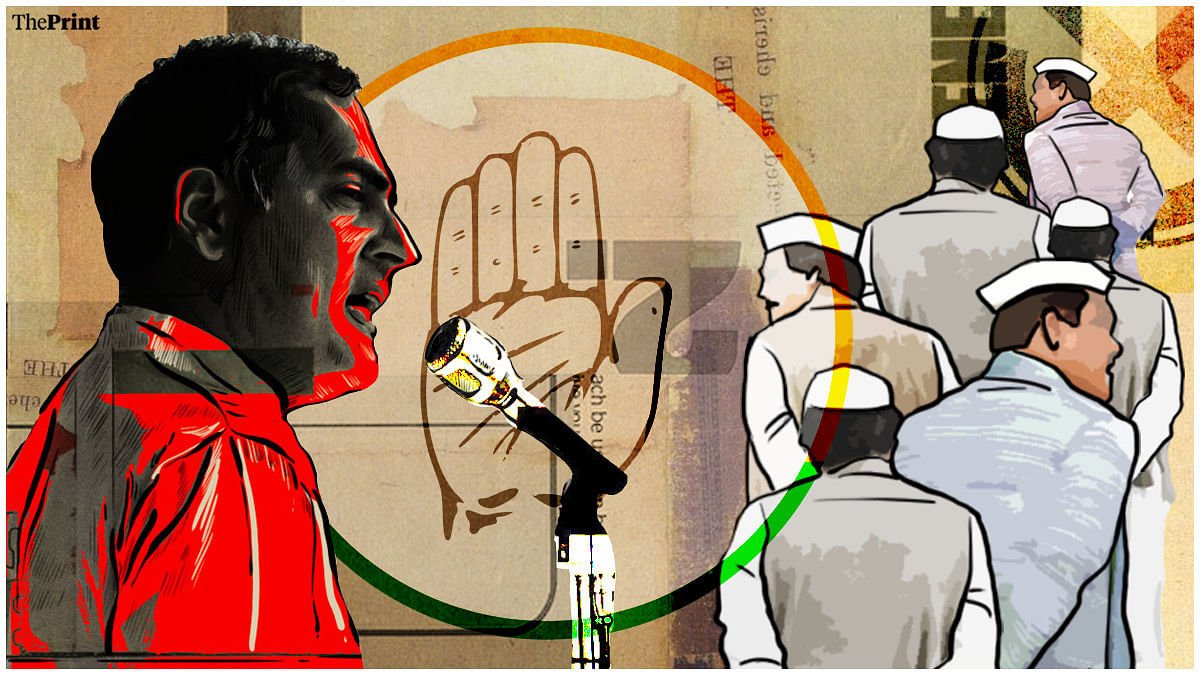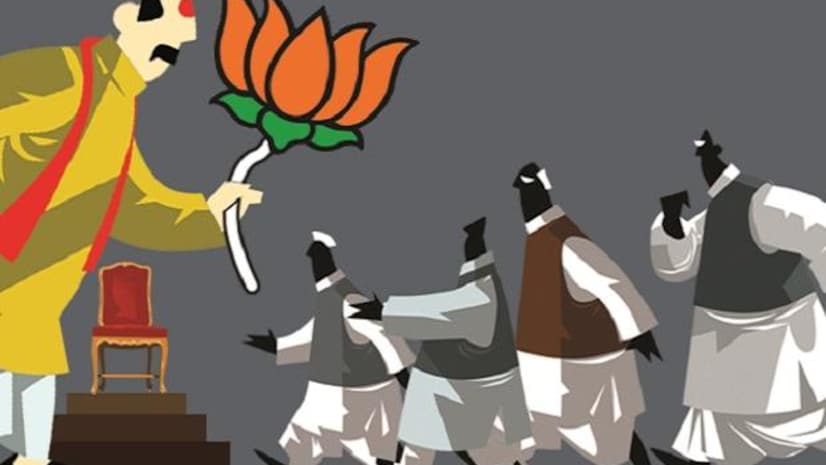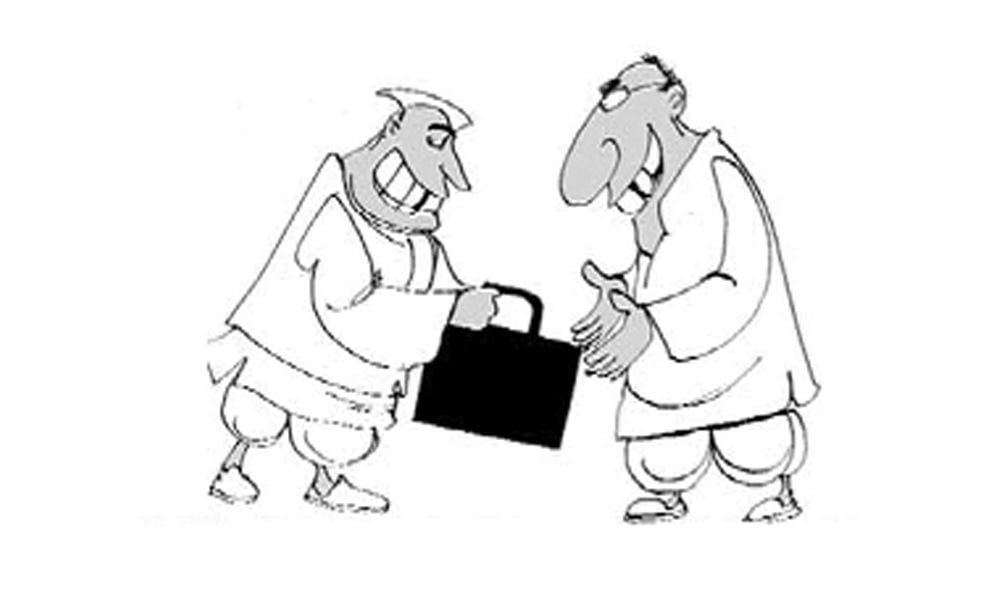India is known as the mother of democracy worldwide. The 2024 general elections have started and over 970 million people are all set to vote for their representatives. However, the news of politicians switching parties before the elections is making rounds in political society. While the anti-defection law is there as an aid, still there seems to be no implementation of the law. The question is: for how much longer politicians will keep on switching parties and how it will affect voters, parties and the 2024 general elections.
Defection and the effects
Defection is act of abandoning a country or political party in favour of opposing side and is related to giving up a sort of allegiance tied by duty. The person who commits this act is called a defector who is often seen as traitor in the eyes of the people.
Defection is act of abandoning a country or political party in favour of opposing side and is related to giving up a sort of allegiance tied by duty.
The first instance of defection was seen during the Cold War wherein many people emigrated from the Soviet Union to the West illegally to avoid prosecution as spies. Another instance was when British spy, Kim Philby defected to the USSR to avoid exposure as a KGB mole.
Defection has affected the foundational systems of countries both positively and negatively. The positive effects are: innovation, highlighting systematic issues, re-evaluation of unjust norms and increased economic competition among businesses. The negative effects are: trust erosion, weakened unity, breeding of inequality and decrease in collective welfare.
History of political defection in India
Political Defection is when one switches political parties due to a lack of ideology or party democracy, personal ambitions, more money, votes and power.
Defection in India started in the year 1967 when legislator Gaya Lal switched parties thrice in a day (from Janata Party to Congress and vice-versa).This gave rise to infamous phrase “Aaya Ram Gaya Ram” (“Ram has come, Ram has gone”) which became subject of jokes and cartoons. Post this incident, defection increased quite a lot with 50% of legislators elected between 1967 to 1971 elections defecting to other parties, leading to a turmoil in polity system.
Due to rise of public opinion about the immediate need for the law, after the 1984 elections, Rajiv Gandhi proposed a new anti-defection bill in the Parliament.
To tackle increased political defection, a committee was formed under the chairmanship of Y. B. Chavan during the 4th Lok Sabha in 1967 which submitted a report in 1968, leading to the first attempt to submit an anti-defection bill in the Parliament. Although the opposition was supportive of bill, the Indira Gandhi government referred it for consideration by a Joint Selection Committee; it did not emerge from the committee before all legislative proposals were voided. 1977-79 was a crucial period when the Morarji Desai government was driven out by defection of 76 parliamentarians. Political uncertainty remained until Indira Gandhi was elected again. It continued in a way, leading to non-Congress representatives defecting and political corruption.
The anti-defection law
Due to rise of public opinion about the immediate need for the law, after the 1984 elections, Rajiv Gandhi proposed a new anti-defection bill in the Parliament. After much debate, both Lok Sabha and Rajya Sabha approved the bill on 30th and 31st January, 1985 respectively. It was put into effect on 18th March, 1985.
The intention of the law was to curb political corruption, strengthen the democracy, ensure government programmes aren’t hampered by defectors and make politicians more responsible and loyal to aligned parties.
The law has put in the process of disqualifying an elected member for the remaining term if the person has voluntarily given up the membership of a political party, voted or abstained from voting against the party’s will, was absent during votings on bills, joined another party after the elections as an elected representative or joined a party six months after they have taken their seat. The decision for disqualification rests on the hands of the Chairman or the Speaker of the respective legislative house.
The anti defection law seems to be there in place on paper and less implemented in real political systems.
The exemptions apply to parties merging with two-thirds of the political party members consenting to the merger, including the Speaker, the Chairman and the Deputy-Chairman of various legislative parties.
Challenges with the law
The law has faced criticism with regard to the inconsistencies with the term ‘defection’, the restriction of freedom and the undermining of democratic principles. Some of the challenges in the anti defection law are-
- Restriction of legislator’s freedom: It undermines representative and parliamentary democracy by restricting the legislator’s freedom of speech and expression.
- Interpretation issues: Phrase like ‘voluntary giving up of membership of political party’ have been subjects of interpretation, have created uncertainty and resulted in inconsistent application of the law.
- Procedural issues: The power given to the speaker regarding defection has been criticised for biases due to them belonging to the ruling party.
- Allowing defection: The law allows a group of members to defect if they constitute two-thirds of their original party without any penalty. It creates loopholes for unethical mergers, splits and horse-trading. It ends up undermining the integrity of the polity system.
- Root cause issue: It doesn’t address root causes such as lack of party democracy, electoral malpractices and prevents the entrance of defectors, eroding democratic values.
Political defection in 2024 and its impact on elections
The anti defection law seems to be there in place on paper and less implemented in real political systems. Today, defection has become a menace and it continues to be there in full swing even during election season.
Some instances of political defection in the 2024 electoral season are:
- Vijender Singh: On the eve of the 2024 elections, the boxer cum politician Vijender Singh made headlines by switching parties from Congress to BJP. He compared switching to moving up a weight category in boxing. It suggested his discontent with the Congress party. Also,he had openly talked about the emotional price he paid for it but maintained he did so for betterment of the youth, believing that his actions will prove his commitment to the nation. His case shows how one can switch parties just for personal gains and earning opportunities.
- Dhairyasheel Mohite Patil: Just days before elections, former district secretary general Dhairyasheel Mohite Patil made headlines by quitting BJP and joining NCP. He had resigned and switched parties by citing personal reasons.This move is seen to have a major impact on the region where the prominent Mohite-Patil family holds a considerable influence. His case shows how one can defect to another party just for the sake of gaining power through family connections.
- The twin defection: Just a month before the elections, BSP faced the double defection of former MP Sangeeta Azad and former spokesperson of the party and the lawyer of the Nirbhaya case victim, Seema Kushwaha. Both of them switched loyalties to BJP. The reasons cited by Azad and Kushwaha were the invisibility of leadership, the PM’s welfare measures and his ‘Viksit Bharat’ vision for nation. Azad and Kushwaha’s defection can help BJP consolidate Dalit votes in UP. The twin defections show how defection for money-muscle creates barriers for parties who contest the elections.
These cases reveal how power, money and personal ambitions can change the political dynamics and affect everyone in the political system negatively.
The increasing defection cases can impact the 2024 Lok Sabha elections negatively as this can lead to voters switching loyalty due to favourite leaders switching sides, parties facing barrier in elections, thus damaging people’s mandate on the polity system. It can also lead to less voting turnover due to lack of faith in politicians and the trivialisation of the rule “free and fair elections” in the country. Hence, there is an urgent need to bring in reforms which can bring real implementation of law, mitigate desertions and ensure the “free and fair election” rule remains intact.
Recommended solutions for political defection
To reform the anti-defection law and tackle defection cases during elections season, there is an urgent need to bring the solutions pertaining to both of them at same time.
The solutions to implement are as followed:
- Clarifying interpretation: Addressing misinterpretation of terms and putting in clear guidelines on defection will help in reducing uncertainty and inconsistency in law application.
- Shifting the decision power: The power to make a decision on disqualification should be shifted to an independent body such as the Election Commission which could help ensure fairness and impartiality.
- Penalty for defection: Prohibiting or penalising politicians for defection in exchange of benefit offers can discourage such practices and ensure politicians are loyal to the party and the public.
- Right to dissent: Recognising the right of legislators and representatives to dissent without disqualification can promote healthy debate, independent thought and bring reforms for the betterment of the country.
- Balance between stability and accountability: Introducing regulations to enforce internal democracy, exempting mergers, bringing in mechanisms to assess public interest in such cases and allowing disqualification if it harms people, can strike a balance between stability and accountability.
The solutions can help in reducing defection, ensuring political institutions remain value-based and the 2024 elections are conducted in a free and fair manner.
In conclusion, political defection has been a menace in political system and has damaged people’s mandate. The anti-defection law has been in force, largely helping in preventing defection, but there seems to be little implementation of the same. Defection doesn’t seem to go away anytime soon.
The anti-defection law has been in force, largely helping in preventing defection, but there seems to be little implementation of the same.
Therefore, it is significant to recognise the right to dissent, the public interest and ensure rules are implemented in political system so that the law serves its purpose without undermining the democratic principles it seeks to protect. It must be ensured that the law is relevant in the political landscape to ensure a robust democracy and the smooth conduction of the 2024 Lok Sabha elections in unbiased and liberal manner.








